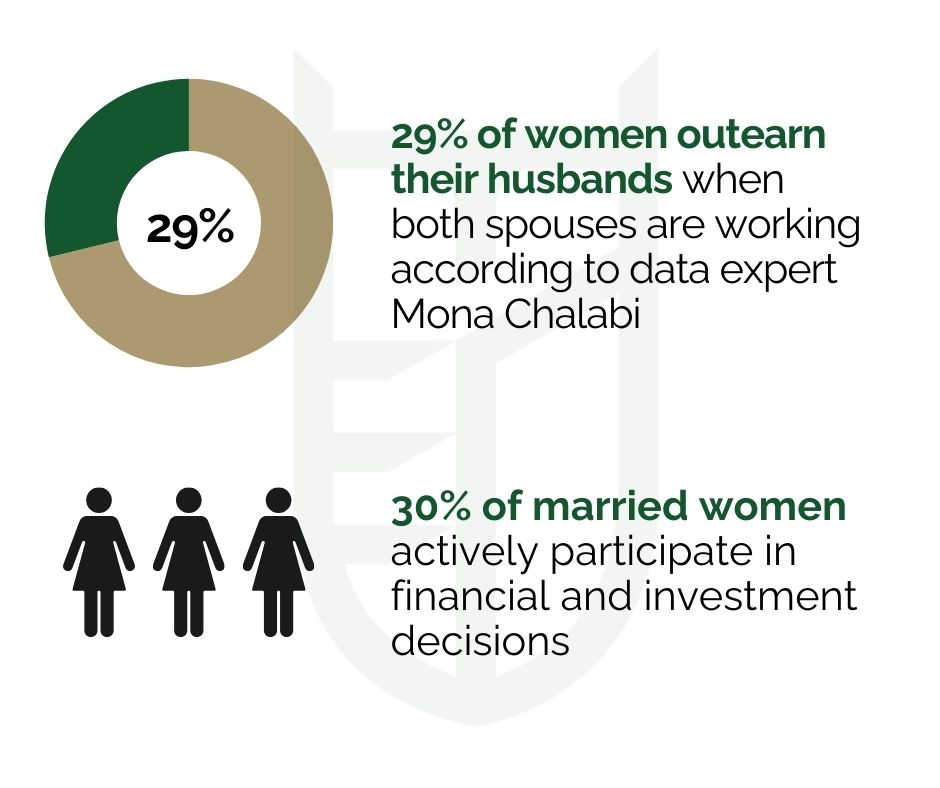A significant shift is unfolding in the ever-evolving world of wealth and finance. The spotlight is now turning toward women and wealth, a demographic reshaping the power dynamics in finance.
Despite historical male dominance in wealth management, women are now recognized as a major force in the industry. Women are managing more wealth than ever before, confidently navigating asset management and influencing policy decisions and financial markets.
Join us as we kick off our “Women in Wealth” series, exploring the trends, challenges, and opportunities shaping the role of women in finance.

Significant Wealth Transfer To Women
By 2030, American women will take the reins of a substantial portion of the $30 trillion in financial assets owned by Baby Boomers. This shift isn’t just about numbers on the page; it reflects demographic shifts, where women often outlive men and inherit their spouses’ assets.
Women already command a remarkable share, steering a third of the total US household financial assets, a surprising $10 trillion. The influence women currently have is a preview of the big changes expected in the next ten years.
The $30 trillion wealth transfer is not merely a transfer of financial assets; it symbolizes a transfer of economic power, decision-making, and the ability to influence future investments and market outlooks.
Changing Role Of Women In Financial Decision-Making

Women are increasingly stepping into more prominent roles in financial decision-making. Over the past five years, there has been a 30% increase in married women actively participating in financial and investment decisions. In fact, nearly 9 in 10 women who are married or live with a partner said they are involved in spending and investing decisions in their household.
In addition, as more women take on the role of family breadwinners, their investable assets grow. With a more significant share of the family’s financial responsibilities, women not only accumulate more substantial wealth, but they also play a pivotal role in shaping investment decisions.
This shift underscores the importance of acknowledging the diverse and influential roles that women now play in steering the course of family wealth management.
A Growing Force in Wealth
 The wealth landscape is undergoing a transformative surge powered by women. Annually, women contribute $5 trillion to the global wealth pool, outpacing the overall growth of the wealth market. Projections indicate that by 2023, women will yield a staggering $93 trillion in wealth – an indication of their rapidly increasing financial influence.
The wealth landscape is undergoing a transformative surge powered by women. Annually, women contribute $5 trillion to the global wealth pool, outpacing the overall growth of the wealth market. Projections indicate that by 2023, women will yield a staggering $93 trillion in wealth – an indication of their rapidly increasing financial influence.
The influence of women is further emphasized by their control over investable capital, voting shares of stock, and corporate board seats. Leveraging their leadership skills, these women actively contribute to reshaping industries and corporate financial futures.
How Women And Investing Trends Are Changing
More females are investing than ever before. 67% of women are now investing outside of retirement, up 44% from 2018. Millennial women, in particular, show a high level of interest in investing, with 71% investing outside of retirement accounts.
Breaking away from stereotypes, women exhibit unique investment behaviors that go beyond conventional expectations. Their investment decisions often revolve around specific goals like funding retirement, supporting post-retirement lifestyles, and other personal goals.
Additionally, women prefer environmental, social, and governance (ESG) concerns in their investment choices. A USB Sentiment survey indicates that 71% of women consider sustainability in their investment decisions.
A thoughtful and data-driven approach to investing frequently leads to women outperforming men in investment returns. Women tend to approach investing more cautiously, which can help them make better financial choices. In addition, women trade 50% less than men, which is one factor that contributes to them outperforming male investors by over a percentage point.
The Need For Wealth Management Firms To Adapt
The Wealth Management industry is at a turning point, and adaptability is essential. Women seek new wealth management relationships aligned with their unique needs, especially after significant life events like losing a spouse.
Unfortunately, wealth management services for women often fall short with products and messaging that can feel condescending or superficial. Unconscious bias in the wealth management sector can also lead to assumptions about women’s financial decision-making roles.
To meet this growing market, wealth management firms must provide personalized advice, create a conscious inclusion culture, and understand women’s nuanced requirements. Firms that can successfully adapt to these changes will enhance client satisfaction and open doors to significant revenue growth.
Transforming Wealth Management
In an era where the dynamics of financial empowerment are undergoing transformative shifts, Stableford Capital is committed to adapting and actively reshaping wealth management.
Through this commitment, we strive to set a new standard in the industry and advocate for both women and men seeking a wealth management partner that understands and champions their financial journey.
For customized wealth management services that align with your unique needs, contact Stableford Capital at 480.492.2300 or through our contact page. Our mission is to exceed our clients’ expectations, ensuring that their experience is characterized by empowerment, education, and a personalized touch.


